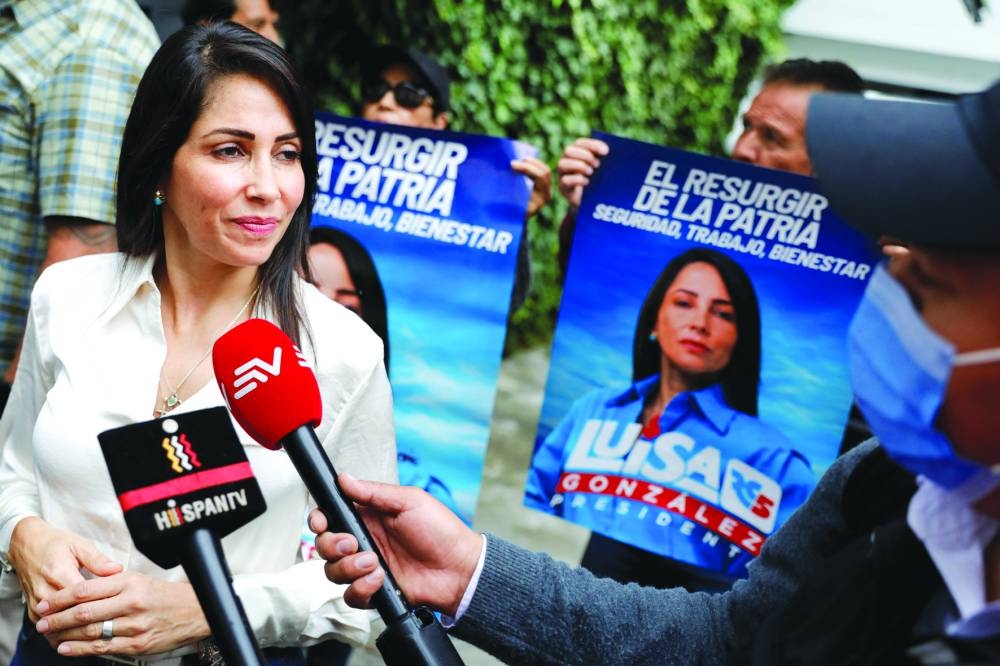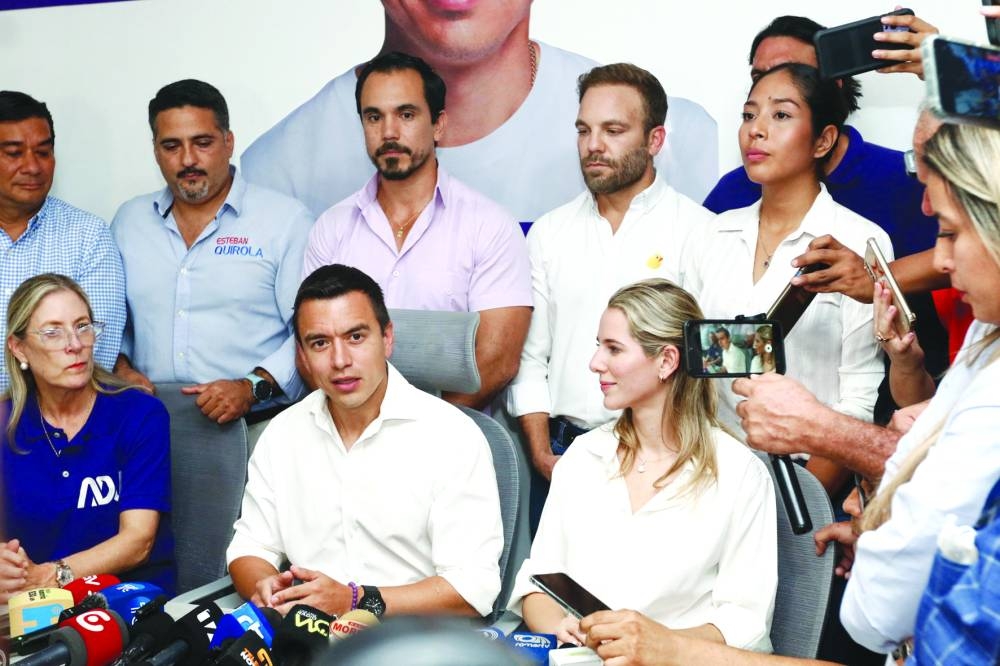A socialist lawyer will battle a surprise right-wing candidate to become the next president of Ecuador, a once-peaceful nation engulfed by lawlessness linked to the global drug trade.
With 98% of votes counted, no candidate hit the threshold to claim victory.
“We are heading to a second-round election on October 15,” president of the National Electoral Council Diana Atamaint told journalists.
Leftist Luisa Gonzalez and banana industry heir Daniel Noboa will battle in the run-off after coming top in the first round of voting on Sunday, with pro-business Noboa’s surprising ascent a balm to investors.
Gonzalez, a protégé of former president Rafael Correa who has promised to revive his social programmes, won 33% support, while Noboa, son of prominent banana businessman and perennial presidential candidate Alvaro Noboa, was a surprise second-place with 24% of the vote.
Centre and centre-right candidates, including Noboa, took over 45% of the vote.
Noboa, said the “youth” had chosen him to beat Correa’s party, while Gonzalez hailed her “triumph” in the first round.
“We are making history,” she said.
Noboa approaches the October 15 run-off as a relative favourite despite Gonzalez’s lead, though the vote is expected to be tight, said analysts.
“This result should continue to be constructive for valuations from the onset,” said JPMorgan analysts in a note in which they remain overweight Ecuadorean bonds as “Noboa’s platform seems to be aligned with fiscal prudence and a more stable macro environment”.
Noboa, who seemingly gained support after performing well in the only televised debate of the campaign, was a lawmaker until current President Guillermo Lasso dissolved the national assembly and called early elections.
His campaign has focused on job creation, tax incentives for new businesses and jail sentences for serious tax evasion.
Gonzalez has promised to free up $2.5bn from international reserves to bolster Ecuador’s economy and bring back million-dollar social initiatives Correa implemented during his decade in power.
“We think markets will likely welcome the outcome of Monday’s vote,” said Stuart Culverhouse, head of fixed income research at Tellimer Research in a note on Monday, adding that it allows the anti-Correa, business-friendly vote to coalesce.
The contest was darkened by the assassination of anti-corruption candidate Fernando Villavicencio earlier this month.
The crime is still under investigation, but Villavicencio, who was replaced as a candidate by his friend and fellow investigative journalist Christian Zurita, came third with 16%.
Villavicencio’s name appeared on the ballot papers because they were printed before his murder.
Sharp increases in crime, which the current government blames on drug gangs, and the struggling economy, whose woes have caused a rise in unemployment and migration, were the top concerns among voters.
The small South American country has in recent years become a playground for foreign drug mafias seeking to export cocaine from its shores, stirring up a brutal war between local gangs.
It hit a record of 26 homicides per 100,000 inhabitants last year, almost double 2021’s figure and higher than the rate in Colombia, Mexico and Brazil.
Correa’s Citizens’ Revolution party was leading a nearly complete count for seats in the national assembly, with about 39% support, while Villavicencio’s Construye party tallied 21% and Noboa’s National Democratic Action 14.7%.
Also on Sunday’s ballot were two environmental referendums that could block mining in a forest near Quito and development of an oil block in the Yasuni reserve in the Amazon.
The oil block referendum was winning 59% support, with almost 100% of ballot boxes counted, while a ban on mining in the Choco Andino forest near Quito was also winning with 68% support.
Advocates say the bans are necessary to protect nature, fight climate change and, in the case of the Yasuni vote, safeguard some Indigenous Waorani people who are voluntarily isolated.

Luisa Gonzalez

Daniel Noboa
